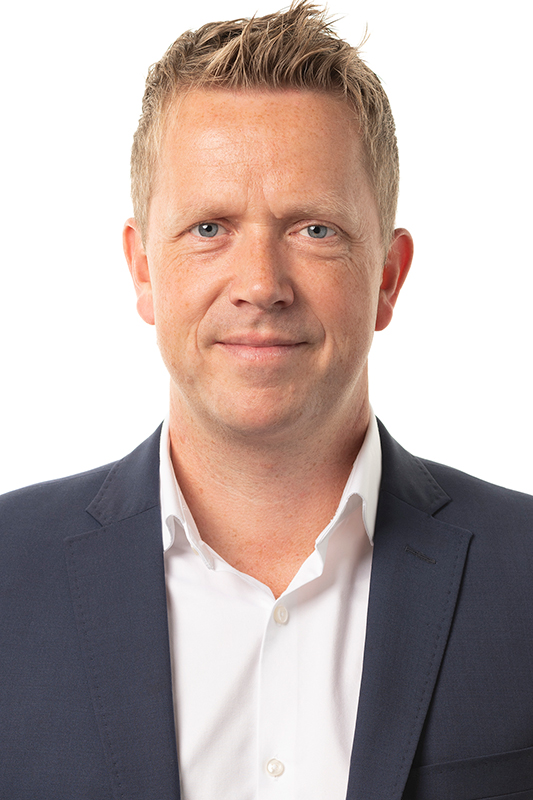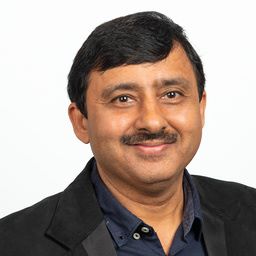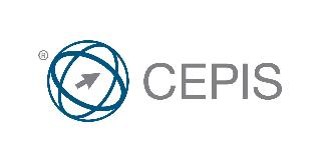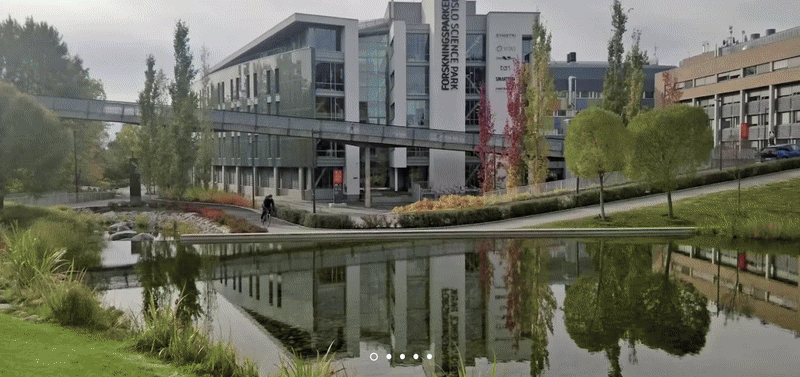It is with great pleasure to welcome you to the First International Conference on Digital Sovereignty (ICDS 2024), which is established and organised by the Institute for Energy Technology (IFE) from November 28 to 30, 2024, in Oslo, Norway.
In today’s interconnected world, the concept of digital sovereignty has emerged as a critical issue for nations striving to protect their digital infrastructure, maintain control over digital assets, and ensure the integrity of their digital economies. As technology evolves rapidly, the need for robust frameworks and policies to safeguard national interests in the digital realm has never been more pressing. The Institute for Energy Technology (IFE) is proud to announce the International Conference on Digital Sovereignty, a premier event dedicated to exploring the multi-faceted aspects of digital sovereignty, including cyber security, decentralised architectures, data governance, and the ethical deployment of emerging technologies.
This conference will bring together leading experts from industry and academia to share insights, present groundbreaking research, and discuss innovative solutions for maintaining digital sovereignty in an era of unprecedented technological change. Attendees will benefit from diverse presentations and input from cutting-edge academic research that addresses the latest challenges and opportunities in this field and from industry leaders who are at the forefront of implementing digital sovereignty strategies. Join us in ICDS – 2024 to engage in meaningful dialogue, network with key stakeholders, and contribute to shaping the future of digital sovereignty. We can build a more secure, autonomous, and resilient digital world.
We are looking forward to welcoming you!
Sanjay Misra and Petter Kvalvik (General Chairs)
Conference Program (Overview)
| 28.11.2024 | Invited Keynotes from Institute of Digital Sovereignty and GAIA-X.
It will be followed by presentations from industrial experts on topics related to Digital Sovereignty; |
| 29.11.2024 | Invited Keynote from Norwegian University of Science and Technology.
It will be followed by presentations on accepted papers. |
| 30.11.2024 | Oslo City Walk Tour / Networking |
Detailed Program
Detailed Program is available for download here.
Thursday, November 28th 2024
08:30 – 09:00: Registration and Mingling
09:00 – 09:10: Welcome
09:10 – 09:40: Europe on the Path to the Cloud Infrastructure of the Future, (Marco Schuldt, Regierungsdirektor, Federal Ministry for Economic Affairs and Climate Action (BMWK))
09:40 – 10.10: European Data Spaces and data-driven innovation (Ulrich Ahle, CEO Gaia-X)
10.10 – 10:40: Digital Sovereignty Provenanced Data, Interoperability, and Open Standards (Chandra Challagonda, CEO FIWARE)
10:40 – 11:10: Coffee and Mingling
11:10 – 11:30: National digital sovereignty (John Bothner, Norwegian National Security Authority – NSM)
11:30 – 11:50: AI and Digital Sovereignty in Norway (Klas Pettersen, CEO The Norwegian Artificial Intelligence Research Consortium)
11:50 – 12:45: Lunch
12:45 – 13:05: The Norwegian Center for Digital Sovereignty (Petter Kvalvik, IFE)
13:05 – 13:25: The enablers for innovation for a Norwegian industry cluster on digital sovereignty (Helle Øverby, Innovation Norway).
13:25 – 13:45: Launch of the Nordic Center for Data Innovation and Gaia-X Hub Norway (Hermund Arntzen Dale, Smart Innovation Norway)
13:45 – 14:05: The Norwegian FIWARE iHub innovation ecosystem (Petter Kvalvik, IFE)
14:05 – 14:30: Coffee and Mingling
14:30 – 14:50: Operationalization of digital Self- Sovereignty (Louise Helliksen, CEO, EYD)
14:50 – 15:10: A Norwegian Self-sovereign cloud (Elise Knutssøn Lindeberg, CEO Skygard)
15:10 – 15:50: Panel “How can we create a strong Norwegian ecosystem of tech companies providing solutions and services safeguarding trust and human centricity?” (Christian Haukaas, CEO Venturenet)
15:50 – 16:00: Closing of Day One and Information About Day Two
16:00 – 17:00: Networking
Friday, November 29th 2024
Detailed Program is available for download here.
08:00 – 08:10: Conference Opening Day Two
08:10 – 08:45: Towards a Cybersecurity-oriented Research Agenda for Digital Sovereignty (Sokratis Katsikas, Norwegian University of Science and Technology)
08:46 – 09:00: Coffee
09:00 – 10:30: Presentation Sessions
10:31 – 10:45: Coffee
10:46 – 12:00: Presentation Sessions
12:00 – 13:00: Lunch
13:00 – 13:45: Presentation Sessions
13.46 – 14:15: Coffee and Networking
14:16 – 15:00: Presentation Sessions
15.00 – 15:30 Conference Wrap-up
Saturday, November 30th 2024
09:00: Meeting at Oslo S
09:15 – 12:00: Oslo City Walk Tour and Networking
The detailed program for 30.10.2024 (Oslo Walk Tour and Networking) will be updated shortly here.
Keynote Speakers

1. Ulrich Ahle, CEO of gaia-X, Belgium
Biography: Ulrich is a reputed executive in the IT sector, formerly Vice President and leader of the Manufacturing and Industrie 4.0 System Integration business at Atos in Germany. He is also founder and member of the Board of the International Data Spaces Association in Germany and served 16 years in the Board of the prostep IVIP organization until April 2018. After an apprenticeship as toolmaker at Hella KG, he studied Mechanical Engineering at the University of Paderborn. In his career, Ahle held several positions as development engineer, Director of PLM services, sales director and Vice President. He has been part of Nixdorf Computer AG, Siemens and Atos. From January 2017 until the end of 2023 Ulrich Ahle was Chief Executive Officer of the FIWARE Foundation headquartered in Berlin, Germany. Starting from November 2023 Ulrich became CEO of the Gaia-X Association headquartered in Brussels, Belgium.
Title of the Talk : European Data Spaces and Data-driven Innovation
2. Marco Schuldt, Regierungsdirektor, Federal Ministry for Economic Affairs and Climate Action (BMWK), Germany

Biography: Marco Schuldt brings a wealth of expertise and leadership in digitalization and industrial innovation. Currently serving as the Deputy Head of Section for Industrie 4.0 and Digitalization at the BMWK, he is also the coordinator of the Important Project of Common European Interest on Next Generation Cloud Infrastructure and Services (IPCEI-CIS). In addition, Marco chairs the “Digital” Workgroup under the Joint-European Forum for IPCEI at the European Commission. His extensive experience and strategic insight make him exceptionally well-suited to provide a comprehensive perspective on pivotal projects shaping Europe’s digital and industrial future.
Title of the Talk: Europe on the Path to the Cloud Infrastructure of the Future
Abstract : He will share insights and a strategic outlook into the major European effort in creating the cloud-edge infrastructure of the future: the Important Project of Common European Interest (IPCEI). Next-Generation Cloud Infrastructure and Services. With 12 participating member states and a volume of several billion euros, this IPCEI is Europe’s push to build a high-performance cloud-edge infrastructure to ensure European competitiveness in the digital environment in the long term. To achieve this goal, a particular focus is placed on interoperability, sustainability, cybersecurity and standardisation. Look forward to an inspiring talk giving the “big picture” of Europe’s strategic aim in this crucially important space.
3. Sokratis Katsikas, Professor and Director of SFI – NORCICS, Norwegian University of Science and Technolog (NTNU), Norway.

Biography: Sokratis K. Katsikas is the Director of the Norwegian Centre for Cybersecurity in Critical Sectors and Professor with the Department of Information Security and Communication Technology, NTNU. He is also Professor Emeritus of the Department of Digital Systems, University of Piraeus, Greece. In 2019 he was awarded a Doctorate Honoris Causa from the Department of Production and Management Engineering, Democritus University of Thrace, Greece. In May-June 2023 he served as Minister of Digital Governance in the interim (caretaking) government of the Hellenic Republic. In 2023 he was listed in the Stanford University list of the top 2% most cited scientists worldwide and in 2024 he was listed in the ScholarGPS Top Scholars list of the top 0.5% of all scholars worldwide. He has authored or co-authored more than 300 journal papers, book chapters and conference proceedings papers. He is serving on the editorial board of several scientific journals, he has co-authored/edited 52 books and conference proceedings and has served on/chaired the technical programme committee of more than 900 international scientific conferences. He is a member of the Steering Committee of the ESORICS Conference (chair 2017-2023) and he is the Editor-in-Chief of the International Journal of Information Security (Springer).
Title of the Talk: Towards a cybersecurity-oriented research agenda for digital sovereignty
Abstract: The notion of “digital sovereignty” has emerged as a means of promoting the notion of leadership and strategic autonomy in the digital field. Digital sovereignty refers to a nation’s or a group of nations’ ability to act independently in the digital world and should be understood in terms of both protective mechanisms and offensive tools to foster digital innovation. This understanding underpins the intrinsic relationship between digital sovereignty and cybersecurity. Even though policy, political and legislative aspects of digital sovereignty are in the forefront of public discourse and the research literature on these issues is increasing, cybersecurity-oriented research on digital sovereignty is only starting. In this talk we will discuss the relationship between selected fields of research in cybersecurity, such as Digital Trust, Privacy, Cyber Resilience, Digital Supply Chain Security on one hand, and Digital Sovereignty on the other, in an attempt to outline a possible cybersecurity-oriented research agenda for digital sovereignty through innovation.
4. Chandra Challagonda, CEO, FIWARE Foundation, Switzerland
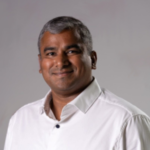
Biography: Chandra Challagonda is a tech executive with over two decades of experience in digital ecosystems, smart cities, and AI governance. As the CEO of FIWARE Foundation and its former VP of Business Development, he has been instrumental in expanding its global network and ecosystem, emphasizing sustainable strategies and partnerships. His expertise in data space development has shaped key EU projects like DSSC, DS4SSCC, and OpenDEI, focusing on data-sharing frameworks, security, and GDPR compliance. Chandra’s entrepreneurial journey includes founding multiple companies, one acquired by Microsoft and another based on FIWARE technologies. His work with OpenDEI and DS4SSCC emphasizes data spaces for smart cities and ethical AI. Additionally, he contributes to forums such as AI for Developing Countries at the UN, advocating for responsible and inclusive AI. Recognized for driving sustainable development and innovation, Chandra has been co-founder, board member, CEO, and CTO, strongly focusing on customer-centric strategies.
Title of the Talk: Digital Sovereignty Provenanced Data, Interoperability, and Open Standards
Call for Papers
We have four tracks in ICDS 2024. Papers in any of these areas, especially with the following keywords covering and related to Digital Sovereignty, are welcome to be submitted. The accepted papers will be published in Elsevier Procedia Computer Science(Confirmed) which is indexed in Scopus, Web of Science, Norwegian Register for Scientific Journals(Level 1) and in many international indexing.
Download the flyer here.
Keywords: Artificial Intelligence, Computational Intelligence, Human-Centric AI, Human-AI Teams, Sovereignty, Internet of Things, Sustainable Development Goals, Artificial Intelligence of Things, Sustainability, Big Data, Data Analytics, Machine Learning, Deep Learning, Intelligent Systems, Cloud Computing, Edge Computing, Blockchain, Digital Autonomy, Federated Systems, Cybersecurity, Digital Trust, Trustworthiness, Resilience
Track 1: Human-Centric Digital Sovereignty
- Digital Trust
- Privacy
- Data Altruism
- Incentives for Sharing Digital Assets
- Dynamic Consent
- Ethical Considerations
- Self-Sovereignty
- Co-Decision
- Transparency and Traceability
- Usage Rights
- Personal Data Spaces
- Human-Centric AI
- Human-AI Team Collaboration
Track 2: Industry and Innovation Impact
- Use of Human-Centric AI and DS in Industry
- AI for National Security and Digital Sovereignty
- Ensuring Cyber Resilience
- Digital Sovereignty in Business: Challenges and Strategies
- Legal Implications of Human-Centric AI and DS
- Policy Frameworks for Digital Sovereignty
- Improving Patient Care and Public Health with Human-Centric AI
- Use of AI and DS in Banking
- Impact of Artificial Intelligence in Industry
- Computational Intelligence Applications
Track 3: Digital Ecosystems and Governance
- Interoperability
- Portability
- Reference Architectures
- Digital Borders and Territories
- Data Spaces
- Cloud-to-Edge Continuum
- Decentralized Identities
- Enhancing Governance and Service Delivery through AI and DS
- Governance Models, Policies, Laws, Regulations, and Compliance
- Trust Anchors
- Business Models
- Data Valuation
- Smart Contracts
- Intelligent Systems Governance
- Decentralised Autonomous Organizations (DAOs)
Track 4: National Digital Sovereignty and Societal Impact
- National AI Capabilities
- National Security Considerations
- Economic Considerations
- Control Over and Autonomy in National Digital Assets
- Resilience and Risk-Based Approaches for Digital Sovereignty
- Technology Independence
- Strategies in a Multi-Polar World
- Addressing Societal Inequalities with Human-Centric AI and DS
- Environmental Sustainability
- AI Solutions for Climate Change and Resource Management
- Emerging Trends and Challenges in Human-Centric AI and DS
- Global Cooperation for Ethical AI and DS
Submission
The ICDS 2024 conference is now in the process of soliciting submissions of original and innovative papers. Prospective authors are invited to submit papers in core and/or related areas of digital sovereignty. The detailed list of topics can be found in the ‘Call for Papers’. Each paper will be reviewed by three experts from International program committee.
The submitted papers must not have been previously published or accepted for publication elsewhere and must not have been submitted to any other conferences before and during the ICDS—2024 review process. Each paper will be reviewed by three experts from the International Program Committee.
Submissions should be made through Easychair.
Submission Guidelines
Authors must submit an original full paper (6 -10 pages) that has not previously been published. All contributions must be written in English.
Authors should consult Elsevier Procedia authors’ guidelines, read all the instructions (including use and declaration of generative AI in writing, research data policy and copyright issues) very carefully and use their proceedings templates, either for LaTeX or for MSWord for the preparation of paper. The MS Word template can be downloaded from below.
Important Dates
| Paper Submission | |
| Author Notification | |
| Registration Due and Camera-Ready Deadline | |
| Conference | November 28 – 30, 2024 |
Venue
The Institute for Energy Technology (IFE), Norway will organise this year’s conference in Forskningsparken (Oslo Science Park), Oslo, Norway.
Registration Fees
| Registration | Fee | |
| Early Bird Registration before 15.11.2024* | Late Registration (18.11.2024) | |
| Regular Author | 425 € / 5000 NOK | 525 € / 6200 NOK |
| Additional Paper | 300 € / 3500 NOK | 300 € / 3500 NOK |
| Attendees (Public Sector, Industry and Businesses) | 300 € / 3500 NOK | 400 € / 4700 NOK |
| IEEE Member Discount (Only for first paper) | 375 € / 4400 NOK | 475 € / 5600 NOK |
Please register here.
Conference Committee
Honorary Chair
Bjørn Axel Gran, Institute for Energy Technology, Norway
Ulrich Ahle, Gaia-X, Belgium
General Chairs
Sanjay Misra, Institute for Energy Technology, Norway
Petter Kvalvik, Institute for Energy Technology, Norway
Finance Chair
Karianne Hauge Bjugan, Institute for Energy Technology, Norway
Registration Chair
Brit-Kari Bjørlo, Institute for Energy Technology, Norway
Steering Committee
Robertas Damaševičius, Silesian University of Technology, Poland
Rytis Maskeliunas, Kaunas University of Technology, Lithuania
Murat Koyuncu, Atilim University, Turkey
Lalit Garg, University of Malta, Malta
Sanjay Misra, Institute for Energy Technology, Norway
Habtamu Abie, Norwegian Computing Center, Norway
International Advisory Committee
Ricardo Colomo-Palacios, Universidad Politecnica de Madrid, Madrid, Spain
Mohammad S. Obaidat, The University of Jordan, Amman, Jordan
Matthew Adigun, University of Zululand, South Africa
Victor Mbarika, East Carolina University, USA
Program Committee Chairs
Kai Morgan Kjølerbakken, Institute for Energy Technology, Norway
Christian Haukaas, Venturenet. Norway
Aida Omerovic, SINTEF, Norway
Per-Arne Jørgensen, Institute for Energy Technology, Norway
Nadia Saad Noori, University of Agder, Norway
Local Chairs
Sizarta Sarshar, Institute for Energy Technology, Norway
Sabarathinam Chockalingam, Institute for Energy Technology, Norway
Vasileios Gkioulos, Norwegian University of Science and Technology, Norway
Mohsen Toorani, University of South-Eastern Norway, Norway
Sandeep Pirbhulal, Norwegian Computing Center, Norway
International Conference Committee (updating)
Sanjay Misra, Institute for Energy Technology, Norway
Brij Gupta, Asia University, Taiwan
Manju Khari, JNU, India
Per-Arne Jørgensen, Institute for Energy Technology, Norway
Gokhan Sengul, Atilim University, Turkey
Sudeep Tanwar, Nirma University, India
Jan Erik Farbrot, Institute for Energy Technology, Norway
Clara Maathuis, Open University of the Netherlands, The Netherlands
Harald Thunem, Institute for Energy Technology, Norway
Ayan Chatterjee, NILU, Norway
Mario Hoffmann, Institute for Energy Technology, Norway
Daniel Rodríguez, University of Alcalá, Spain
Kai Morgan Kjølerbakken, Institute for Energy Technology, Norway
Michael N Louka, Institute for Energy Technology, Norway
Mohammad S. Obaidat, The University of Jordan, Amman, Jordan
Arne Roar Nygård, Norwegian University of Science and Technology, Norway
Jose María Alvarez Rodríguez, Carlos III University of Madrid, Spain
Pankaj Pandey, Norwegian University of Science and Technology, Norway
Chhagan Lal, Norwegian University of Science and Technology, Norway
Vasileios Gkioulos, Norwegian University of Science and Technology, Norway
Christian Haukaas, Venturenet. Norway
Broderick Crawford, Pontificia Universidad Catolica De Valparaiso, PUCV, Chile
Ricardo Soto, Pontificia Universidad Catolica De Valparaiso, PUCV, Chile
Luis Fernandez Sanz, Universidad de Alcala, Spain
Dilip Singh Sisodia, National Institute of Technology, Raipur, India
Lov Kumar, National Institute of Technology, NIT Kurukshetra, India
Habtamu Abie, Norwegian Computing Center, Norway
Sandeep Pirbhulal, Norwegian Computing Center, Norway
Georgios Lampropoulos, International Hellenic University, Greece
Kerstin Siakas, University of Vasa, Finaland
Mohsen Toorani, University of South-Eastern Norway, Norway
Nadia Saad Noori, University of Agder, Norway
Aida Omerovic, SINTEF, Norway
Ricardo Colomo-Palacios, Universidad Politecnica de Madrid, Spain
Vegard Kolbjørnsrud, BI Norwegian Business School, Norway
Ricardo Soto, Pontificia Universidad Catolica De Valparaiso,Chile
Seifedine Kadry, Noroff University College, Norway
Ibrahim AHameed, NTNU, Norway
Juan A. Gómez-Pulido, Universidad de Extremadura, Spain
Elinda Kajo Mece, Polytechnic University of Tirana. Albania
Rytis Maskeliunas, Kaunas University of Technology
Murat Koyuncu, Atilim University
Terje Bodal, Institute for Energy Technology, Norway
Ibrahim A. Hameed, Norwegian University of Science and Technology
Sabarathinam Chockalingam, Institute for Energy Technology, Norway
Ankur Shukla, Institute for Energy Technology, Norway
Bharti Suri, GGS Indraprastha University, India
Hans Olav Randem, Institute for Energy Technology, Norway
Manju Kaushik, Amity University, Rajasthan, India
Pham Quoc Trung, HCMC University of Technology, HCMC, Vietnam
Rania Elgazzar, University of Agder, Norway
Rituka Jaiswal, NTNU, Norway
Sambeet Mishra, University of South-Eastern Norway, Norway
Contact Information
Conference General Chairs: Sanjay Misra (sanjay.misra@ife.no),Petter Kvalvik (Petter.Kvalvik@ife.no)

